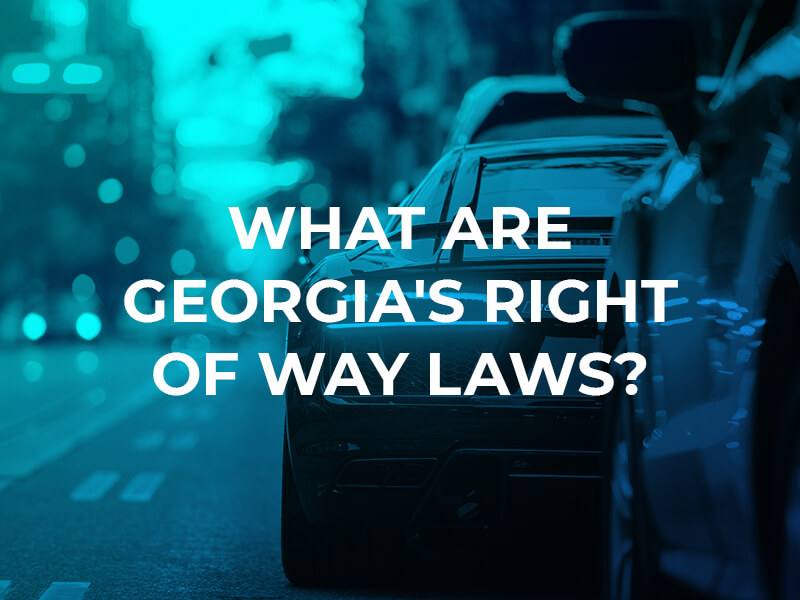Georgia Right of Way Laws
Traffic laws in Georgia are vital for keeping drivers, bicyclists, and pedestrians safe. When drivers fail to obey traffic laws, they could end up in a crash causing serious damages or injuries. Most Atlanta car accidents occur due to driver errors.
One of the most common causes of accidents includes “right-of-way” violations. Right-of-way is a term used to determine who is entitled to change lanes, move through intersections, enter roadways, make turns, and other movements when traffic is on the roadway. Right-of-way violations can lead to serious incidents in and around the roadway. Drivers, pedestrians, and cyclists alike must understand these laws in order to stay safe and prevent injuries.

Georgia right-of-way laws
Georgia law establishes the right-of-way for all traffic situations. Here is a brief summary of the right-of-way laws in the state:
- When traveling towards an intersection and approaching a stop sign, drivers must stop and give the right-of-way to anyone in a vehicle or on foot who is already there.
- If there is no stop sign or signal, drivers must yield the right-of-way to anyone who arrives at the intersection first. If drivers arrive at the same time, the vehicle on the right has the right-of-way.
- At a four-way stop, pedestrians have the right-of-way. Vehicles may move through the four-way stop on a ‘first come, first served’ basis. If two vehicles arrive at the same time, the vehicle on the right has the right-of-way.
- When approaching a yield sign, drivers must slow down and be ready to stop for oncoming traffic.
- When merging, drivers must yield to vehicles already in the lane of traffic they are merging into.
- When crossing a highway or entering a roadway from a secondary road, private road, or alley, drivers must yield to other vehicles and pedestrians already in the main roadway.
- Drivers must always yield to police, fire, EMS, or other emergency vehicles when those vehicles have their sirens and lights activated. Drivers should slow down and move over to the side of the roadway. If a driver is at an intersection, they should keep driving until they are out of the intersection and then pull over.
- Drivers must always yield to highway maintenance vehicles as well as to workers in a construction zone.
- Drivers may turn right on a red light unless a sign is present prohibiting the action. Drivers must yield to oncoming traffic before making a turn.
- It is unlawful for drivers to pass any stopped school bus that has flashing red lights and stop signs activated. Drivers on a highway with a median going in the opposite direction of the bus are not required to stop.
Even though Georgia law outlines right-of-way legalities, common sense and courtesy also go a long way when it comes to right-of-way issues. Even if you have the right-of-way in a situation and you see another driver failing to yield, do what you can to avoid the situation by yielding anyway.
What are the penalties for failing to yield the right-of-way?
Failing to yield the right-of-way can lead to significant penalties. Georgia police can pull a driver over and assess a three-point penalty on their driver’s license. Fines vary from county to county but usually range from $140 to $225 for failing to yield to a private vehicle. Failing to yield to an emergency or maintenance vehicle can lead to a $550 fine.
If you’ve been injured please contact our Atlanta personal injury attorneys today.